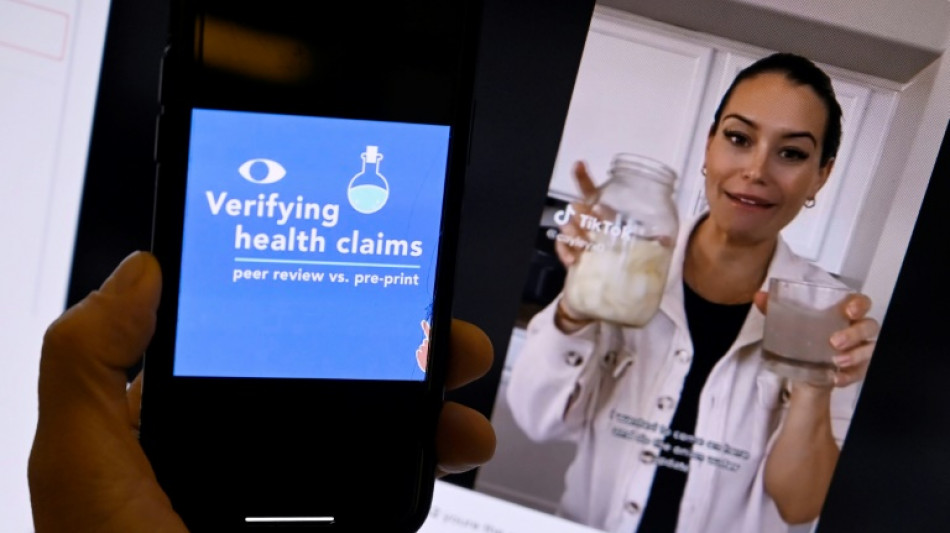
-
 Rain break helps Osaka overcome nerves to reach Auckland quarters
Rain break helps Osaka overcome nerves to reach Auckland quarters
-
Ex-India coach Shastri wants two-tier Test system after MCG blockbuster

-
 New year hope and joy reign in a Damascus freed from Assad
New year hope and joy reign in a Damascus freed from Assad
-
End of Russian gas via Ukraine sparks unease in eastern Europe

-
 Zelensky vows Ukraine will do everything in 2025 to stop Russia
Zelensky vows Ukraine will do everything in 2025 to stop Russia
-
Island-wide blackout hits Puerto Rico on New Year's Eve

-
 Serbia enters New Year with student protests over train station tragedy
Serbia enters New Year with student protests over train station tragedy
-
Romania, Bulgaria join borderless Schengen zone

-
 US Capitol riot fugitive seeks asylum in Canada
US Capitol riot fugitive seeks asylum in Canada
-
Musk flummoxes internet with 'Kekius Maximus' persona
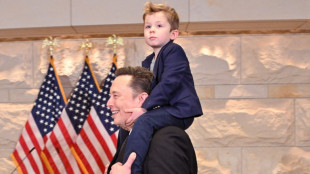
-
 US stocks slip as European markets ring out year with gains
US stocks slip as European markets ring out year with gains
-
Olmo's Barcelona future in air over registration race

-
 Venezuela opposition urges protests against Maduro's inauguration
Venezuela opposition urges protests against Maduro's inauguration
-
Syria's de facto leader meets minority Christians

-
 Suriname ex-dictator Bouterse to be cremated on Saturday
Suriname ex-dictator Bouterse to be cremated on Saturday
-
£1.5 mn reward offered after 'brazen' London gem raid

-
 Zimbabwe abolishes the death penalty
Zimbabwe abolishes the death penalty
-
Barcelona race against clock to register Olmo

-
 Arteta wants Arsenal to hammer away in title race
Arteta wants Arsenal to hammer away in title race
-
Panama marks canal handover anniversary in shadow of Trump threat

-
 Gaza hospital chief held by Israel becomes face of crumbling healthcare
Gaza hospital chief held by Israel becomes face of crumbling healthcare
-
Russian advances in Ukraine grew seven-fold in 2024, data shows

-
 US, European stock markets look to ring out year with gains
US, European stock markets look to ring out year with gains
-
US farmers fret over Trump's deportation plans

-
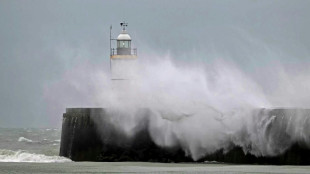 BBC celebrates 100 years of 'poetic' shipping forecast
BBC celebrates 100 years of 'poetic' shipping forecast
-
West Ham's Bowen sidelined with foot fracture

-
 Global markets rode AI, interest rate roller coaster in 2024
Global markets rode AI, interest rate roller coaster in 2024
-
Ocalan: PKK chief held in solitary on Turkish prison island

-
 European stock markets end year with gains
European stock markets end year with gains
-
Yemen's Huthis a 'menace' for Israel despite weakened Iran: analysts

-
 Rooney exit extends managerial struggles for England's 'golden generation'
Rooney exit extends managerial struggles for England's 'golden generation'
-
Gaza healthcare nearing 'total collapse' due to Israeli strikes: UN
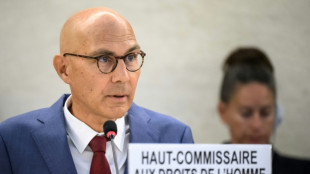
-
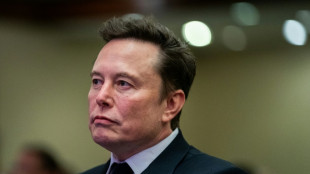 German leaders hit back at Musk's support for far right
German leaders hit back at Musk's support for far right
-
Southgate won't be 'Sir' at home after knighthood

-
 Rooney leaves Plymouth after just seven months in charge
Rooney leaves Plymouth after just seven months in charge
-
Kyrgios needs 'miracle' after return from long injury layoff

-
 Raducanu pulls out of Australian Open warm-up with back problem
Raducanu pulls out of Australian Open warm-up with back problem
-
Celebrated S.African contemporary dancer Dada Masilo dies aged 39

-
 Five talking points at the midway point of the Premier League season
Five talking points at the midway point of the Premier League season
-
Angelina Jolie and Brad Pitt reach divorce settlement

-
 Djokovic, Sabalenka win season-openers but Kyrgios loses on return
Djokovic, Sabalenka win season-openers but Kyrgios loses on return
-
Taiwan says 2024 was hottest year on record
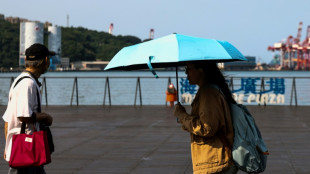
-
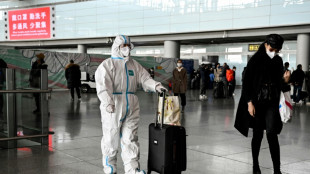 China says shared Covid information 'without holding anything back'
China says shared Covid information 'without holding anything back'
-
Kyrgios goes down fighting on return, Sabalenka wins season-opener

-
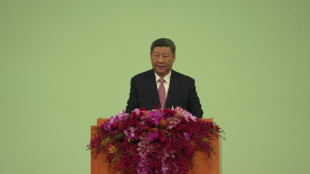 Xi says China must apply 'more proactive' macroeconomic policies in 2025
Xi says China must apply 'more proactive' macroeconomic policies in 2025
-
Gauff, Paolini on fire as USA, Italy surge into United Cup quarters

-
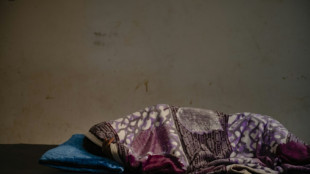 Patients brave mental health desert in Mauritania
Patients brave mental health desert in Mauritania
-
Hart triple-double sparks Knicks to eighth straight NBA win

-
 Angelina Jolie and Brad Pitt reach divorce settlement: report
Angelina Jolie and Brad Pitt reach divorce settlement: report
-
Sabalenka opens season with 'tricky' win in Brisbane


Waste of tears -- fake 'onion water' flu cure exposes disparities
If it tastes this bad, it must be good for you?
Homemade, tear-inducingly strong onion "cures" for flu are the latest medical misinformation spreading on TikTok -- a sign, analysts say, that affordable, evidence-based health care is beyond the reach of many Americans.
Videos extolling the pungent concoction –- made by soaking chopped raw onions in water –- as a miracle cure have garnered tens of millions of views on the influential app despite no scientific proof to support the claim.
The videos have gained traction as the United States faces a so-called "tripledemic" of influenza, Covid-19 and RSV that has put a strain on health services.
Onions in reasonable quantities are not considered harmful –- except for the foul breath –- but health experts warn that such videos promoted a blind belief in simple home remedies that could compromise public health.
"Onions aren't going to hurt anybody, but if somebody is sick, they should seek actual medical attention," Katrine Wallace, an epidemiologist and assistant professor at the University of Illinois Chicago, told AFP.
"I am afraid that people will just drink onions and not seek medical care (and) they could spread Covid or the flu in the community."
The pseudoscience has found many takers, with comments under the videos filled with declarations like "this worked for me!"
That, Wallace said, suggested the so-called "placebo effect," with the dubious onion treatment getting the credit after the virus naturally ran its course.
- Miracle cure? No -
The trend illustrates how TikTok is flooded with unqualified influencers who peddle misinformation, from vaccine and abortion-related falsehoods to health myths –- often to boost engagement and views -- in what experts say can have a serious impact on medical decisions.
In one of the most popular TikTok videos, which garnered over 2.5 million views, one woman -- whose profile did not mention her qualifications and described her only as a "child of mother nature" -- zealously promoted onion water.
For greater healing effects, she implored her viewers to ferment the concoction for hours to make it more "potent."
"We love a miracle cure and for some reason we seem to think that the more painful a remedy is to consume, the more magic it will work," Abbie Richards, a disinformation researcher and fellow with the Accelerationism Research Consortium, told AFP.
"Simple solutions for complex problems frequently perform well in engagement-driven algorithms like TikTok's. Particularly when those solutions are cheap and accessible in areas where evidence-based healthcare is not."
A TikTok spokesman told AFP the platform removes content that qualifies as medical misinformation that is "likely to cause significant harm."
The onion water videos, he added, did not cross that threshold of "significant harm" and were therefore left untouched.
- Millions without medical insurance -
That approach, many experts say, underscores the challenge facing social media platforms of finding ways to eliminate misinformation without giving users the impression that they were trampling on free speech.
Richards cautioned that "excessive moderation" in the case of onion water videos could backfire and "encourage narratives that the truth of affordable medicine is being intentionally hidden."
A more effective approach, she said, would be for TikTok to ensure accurate health information is "available, accessible, and engaging."
"Whether TikTok should take down videos about benign but useless remedies, that's not for me to say," Valerie Pavilonis, an analyst at the misinformation watchdog NewsGuard, told AFP.
"Still, even if a supposed remedy like drinking onion water to solve sinus problems doesn't directly hurt you, it could make you wrongly think that you are treating the problem."
The popularity of the videos reflected what Richards called "systemic failures" in health care.
In a country with expensive medical care, data from the Center for Disease Control and Prevention shows roughly 30 million Americans, or nine percent of the population, have no health insurance.
Millions of other Americans are "underinsured", with their coverage not providing them affordable healthcare, according to the nonprofit Commonwealth Fund.
"It's very easy for us to say: 'Remember to talk to your doctor about medical treatments,'" Richards said.
"But I would expect that a society with limited access to health care, an overburdened health care system, and a generally confused approach to the newest wave in illness, might start drinking onion water or putting garlic in their ears."
S.F.Warren--AMWN
